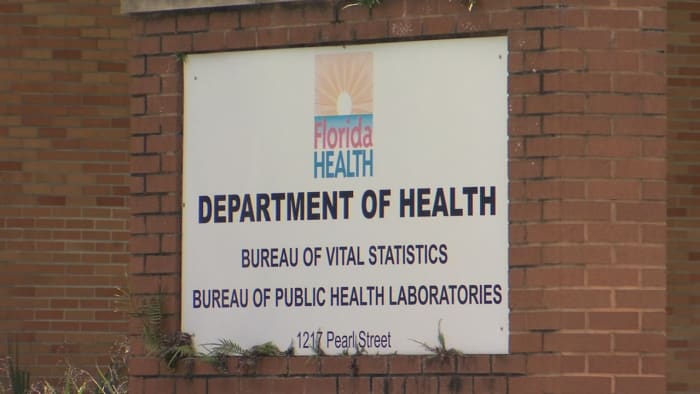One of the most important documents for families after the death of a loved one is now one of the most transported documents in the state.
Death certificates are now physically delivered to health departments for processing.
The News4JAX I-TEAM brought you the news yesterday that the Florida Department of Health’s online database had been hacked by ransomware thieves.
They gave the state until today to pay an unknown ransom, while it is illegal for any government agency to pay a ransom.
The Florida Department of Health issues birth certificates, death certificates, and other health documents.
“To complete the process, a burial permit is provided along with the death certificate,” said Reginald McKinney, funeral director at McKinney Family Funeral Home.
McKinney has overseen the funeral business since 2009. He told News4JAX before the hack that all information regarding a person’s death was submitted online.
Funeral directors now resort to manually completing death certificates.
“The additional step that we now have to take is that in order for that certificate to be completed and filed, we have to take it to the Department of Health and physically hand them the paper document so they can actually file the death certificate. Prior to (the cyberattack), that was done electronically,” McKinney said.
Death certificates are needed for many purposes, such as probating estates, applying for insurance, Social Security, veterans benefits, or obtaining retirement benefits.
McKinney says death certificates are also essential in finalizing a loved one’s final resting place.
“For example, when we take someone to the cemetery, we have to have a burial permit, not necessarily the death certificate, completed, but we would have had to contact the signing physician to have that physician agree to sign the death certificate before that person can be buried in a cemetery or actually cremated,” he said.
Floridians may also have to wait longer to obtain official birth certificates.
“And that’s where the concern lies: With a breach like this, how far can they go with all this data that they’ve stolen?” said Scott Schober, CEO of Berkeley Varitronics.
Schober says hackers could have gained access to the state’s system through something as simple as a phishing email, with devastating consequences for those who did not take steps to protect their credit information.
“Unfortunately, those who don’t have their credit frozen, those who don’t check their statements regularly, because some of them probably have Social Security numbers on them and they think there might be billing information,” he said.
Again, it is illegal in the state of Florida for government agencies to pay the ransom to get their data back, something cybersecurity expert Scott Schober says he agrees with to discourage these types of cyberattacks.
Copyright 2024 by WJXT News4JAX – All rights reserved.


